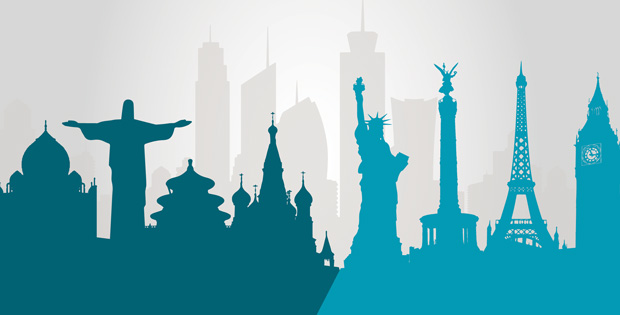In my third year in university in 2004, I followed the Economic Development course delivered by a very good professor, Elif Çepni, in Istanbul. I remember her telling us about the convergence in economies over time.
The concept is pretty simple and logical. It is the hypothesis that the emerging market economies and developed market economies will in the end converge in terms of GDP per capita. The underlying reasoning is that the rate of the growth in the developing world is higher than the rate of the growth in the developed world.
Have developing economies really been catching up with the developed economies since 2004?
The share of the developing world’s population living on less than $1.25 a day (the international definition of poverty) has fallen from 30 per cent in 2000 to below ten per cent according to an estimate by the Centre for Global Development, based on new data published by the World Bank in April 2015.
According to an article in The Economist in 2014, were the emerging world able to maintain a 4.5 percentage point growth advantage over the rich world, then, all other things being equal, its average income per person would converge with that in America in just over 30 years—scarcely a generation.
Unfortunately, since the global financial crisis in 2008, a lot of things have changed. The growth rate of emerging market economies has slowed down and the convergence has faltered.
Growth rate is not the only factor, but it is one of the main reasons that convergence is not happening. Emerging markets have been still dealing with implementing efficient governing policies, productivity levels (technology) and rules of law.
Red tape in emerging markets is very high and corruption does not really help. According to a recent report by Transparency International, emerging markets continue to be more corrupt than the developed world. This reports highlights that Brazil and Turkey have seen the largest fall in terms of cleanliness in the last four years.
Unfortunately, corruption leads to less productivity, and less productivity leads to poor citizens, which in turn leads to less educated communities and bad governing policies along with weakened rule of law.
It is a vicious circle for emerging markets.
I personally believe India has very much potential, but with the current red tape level (opening a business is one of the hardest), the potential of the country is still not being realised. President Modi has been elected to change this, but easier said than done: it will take time.
A paper written by Harvard economist Dani Rodrik in 2011 argues that generalized, rapid convergence is possible in principle, but unlikely in practice. His baseline scenario has to be one in which high growth remains episodic. Sustained convergence is likely to remain restricted to a relatively small number of countries. I totally agree with his conclusions.
According to an Oxfam report, the combined wealth of the richest one per cent will overtake that of the other 99 per cent of people next year unless the current trend of rising inequality is checked. Oxfam made headlines at Davos last year in 2015 with the revelation that the 85 richest people on the planet have the same wealth as the poorest 50 per cent (3.5 billion people). That figure is now 80—a dramatic fall from 388 people in 2010. The wealth of the richest 80 doubled in cash terms between 2009 and 2014.
A prominent Turkish conglomerate, Ali Koc, has mentioned in a conference that we have to sort out the inequality in the system in order not to face bigger problems in the near future. The existence of large inequalities always open the door for correction, which may lead to a global war. The migrant crisis, for example, is an early symptom of this.
Sustainable growth is unlikely, so it will remain just a hypothesis. It is true that we have more middle class now, but we have still one in nine people living below the poverty line (less than $1.25 per day).
On the other hand, there are some voices claiming that the emerging markets’ catch-up with the developed markets will continue into the 2020s. A prominent economist, Kemal Dervis, believes it is not the end of the party for the emerging markets yet.
As a final note, I would like to share with you Dani Rodrik’s 2013 slides about the subject, with which I completely agree.
With low commodity prices; capital flowing back to the mainland; the Chinese slowdown and discussion about whether the landing will be soft or hard; geopolitical developments in the Middle East and Russia, it is likely that the growth rate of the emerging markets will be surpassed in the near future.
This weekend I am in Bintan, a beautiful island just one hour away from Singapore. I will write my observations about the island and my short journey next week.
All the best from Indonesia.
Sukru Haskan
Twitter:@sukru_haskan
